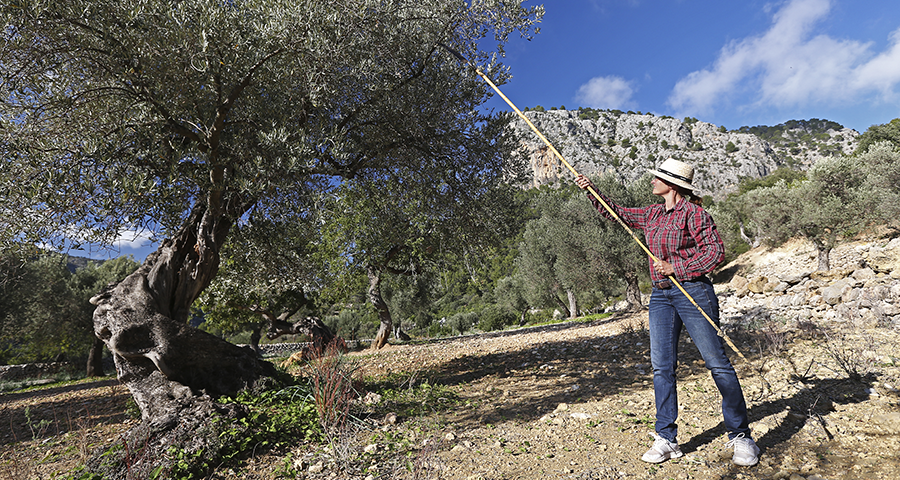For centuries, owners of large estates took advantage of these achievements and produced copious amounts of oranges, figs, almonds and olives. The resulting wealth was particularly visible in their manor houses, the fincas. Enormous estates were built that not only housed the family, but also the numerous workers. Like on the Finca Son Berga, which has stood right behind Alaró for nearly 450 years. “Up to one hundred people used to work here,” explains Elisabet Rotger, known to everyone as Eli. Nowadays there are normally three: Eli herself and her parents, both aged over 70, share the finca – and all of the tasks.
Twelve hours of hard work a day is common, realistically it’s closer to fifteen. “My father always says that work is a constant maturing process,” she says with a smile. Every morning starts in the same way: sweep up the leaves, water the plants, feed the animals. Added to that are the extras: “Earlier today, the vet was here to take blood from all of the sheep and to vaccinate them against bluetongue disease. That was a bit more stressful than usual.”

























